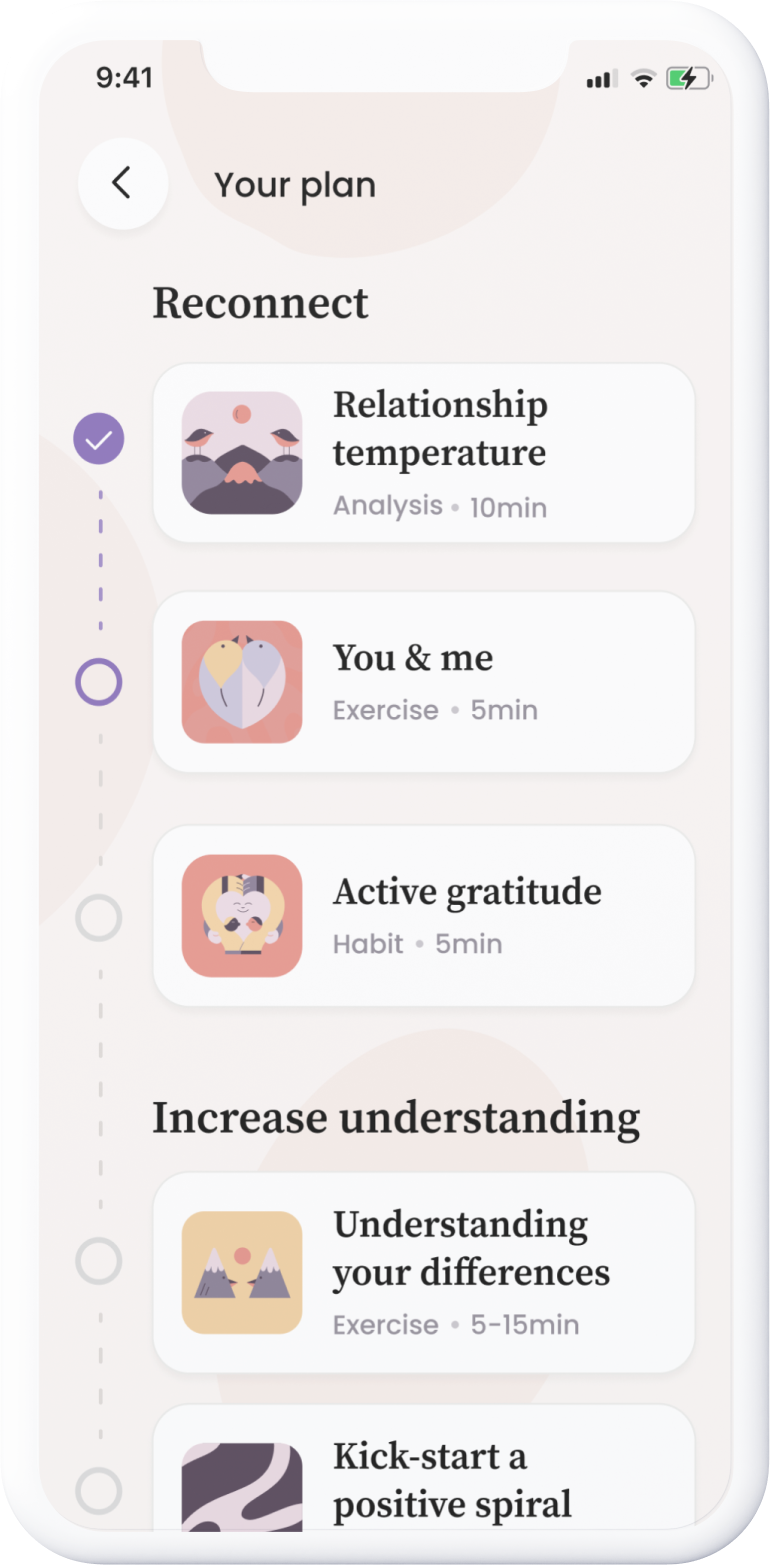The Seven Principles For Making Marriage Work
Dr.John Gottman's invaluable insights into what makes marriages thrive.- 22 March 2024
- 7min

In many long-term relationships, including marriages, the initial spark of romance often fades over time. What was once a source of joy and fulfilment can start to feel boring or unsatisfying, leaving both partners wondering what went wrong and how to make the marriage work again.
Psychology, Dr.John Gottman's research has provided invaluable insights into what makes marriages thrive. Through decades of observation and analysis, Gottman and his team identified seven key principles that are essential for building and maintaining strong, fulfilling marriages. In this article, we delve into these seven principles for making marriage work.
John Gottman’s 7 principles
1. Enhancing love maps
The foundation of a successful marriage begins with knowing and understanding your partner on a deep level. Gottman refers to this as creating a "Love Map," which involves continuously updating your knowledge of your partner's inner world – their likes, dislikes, dreams, and fears. Couples who regularly take the time to share their thoughts, feelings, and experiences with each other and by actively listening and empathising with each other's concerns, they deepen their understanding of one another and strengthen their emotional bond.
2. Nurturing fondness and admiration
In healthy marriages, partners maintain a genuine sense of fondness and admiration for each other, even in the midst of challenges. Regularly expressing appreciation and admiration for your spouse’s qualities and actions is also important. Cultivating a culture of positivity and respect establishes a strong foundation for a resilient relationship that is capable of navigating life's challenges.
A simple gesture like leaving love notes for your partner or expressing gratitude for their efforts can go a long way in nurturing fondness and admiration. By consistently highlighting each other's strengths and acknowledging their contributions to make their marriage work.
3. Turning towards each other instead of away
Effective communication is the heart of every thriving relationship. Gottman's research highlights the significance of "turning towards" each other – actively seeking and responding to bids for emotional connection. Whether through simple gestures of affection or meaningful conversations, consistently acknowledging and responding to your partner's bids strengthens the bonds of trust and intimacy.
Consider a scenario where one partner expresses a desire to spend quality time together, while the other is preoccupied with work. Instead of immediately dismissing the request, the partner tries to respond with understanding of the need, suggesting a compromise that allows them to connect despite their busy schedules. It could be saying: "I really want to talk more about this but right now I have to finish this work task, is it ok for you to make some space for talking more about it tonight?
4. Letting your partner influence you
It’s important to have mutual respect and influence in a relationship. Gottman found that successful couples prioritise collaboration, compromises and valuing each other's opinions and perspectives. When partners are open to influence from one another, it creates a sense of equality and partnership in the relationship.
An example could be the context of making decisions about where to go on vacation. Suppose you want a beach vacation while your partner wants to visit the mountains. Instead of dismissing your partner's preference and insisting on your own choice, you genuinely first consider their perspective and desires. You then recognise the importance of compromise and collaborate in the decision making.
5. Solving solvable problems
Solvable problems are common issues that arise in relationships and can be effectively addressed through communication and compromise. Couples who are skilled at resolving solvable problems demonstrate empathy, understanding, and a willingness to work together. By adopting a soft approach and making repair attempts during conflicts, such as using humour or expressing appreciation, couples can navigate disagreements more constructively. Accepting imperfections and embracing each other's flaws also plays a key role in resolving solvable problems.
6. Overcoming gridlock
Gridlock refers to persistent and unresolved conflicts that can lead to frustration and disconnection in a relationship. Overcoming gridlock requires couples to engage in open and honest communication to understand the underlying issues contributing to the impasse.
By expressing flexibility and being willing to compromise on certain aspects, couples can make progress in addressing gridlocked issues. Expressing gratitude and appreciation for each other's efforts in navigating challenging conversations helps to improve and make the marriage work.
For instance, imagine a couple who have been arguing for years about whether or not to have children. One partner desires to have kids while the other is opposed. Despite numerous attempts to discuss the issue, they find themselves repeatedly stuck in the same arguments. If they, through open communication, could delve deeper into their fears, hopes, and aspirations surrounding the issue of having children they have a better chance to understand each other's perspectives. And as they gain insight into each other's concerns and motivations, they might identify areas of common ground and shared values.
7. Creating shared meaning together
Shared meaning is the last of the seven principles for making the marriage work. It encompasses the shared goals, values, and traditions that couples develop over time, deepening their emotional connection and sense of belonging.
Couples who create shared meaning actively engage in rituals, traditions, and meaningful experiences that reinforce their bond and identity as a couple. This could include celebrating anniversaries, creating family traditions, or pursuing shared interests and passions. By supporting each other's life goals and dreams, couples strengthen their bond and cultivate a sense of purpose and fulfilment in their relationship.
The Ally app
The relationship app Ally is based on methods for couples therapy and research on relationships, including psychologist and professor John Gottman's research. Through the different exercises in the app, the couple gets guidance to better understand each other, show appreciation, improve their communication, and gain a deeper understanding of emotions in conflicts.








